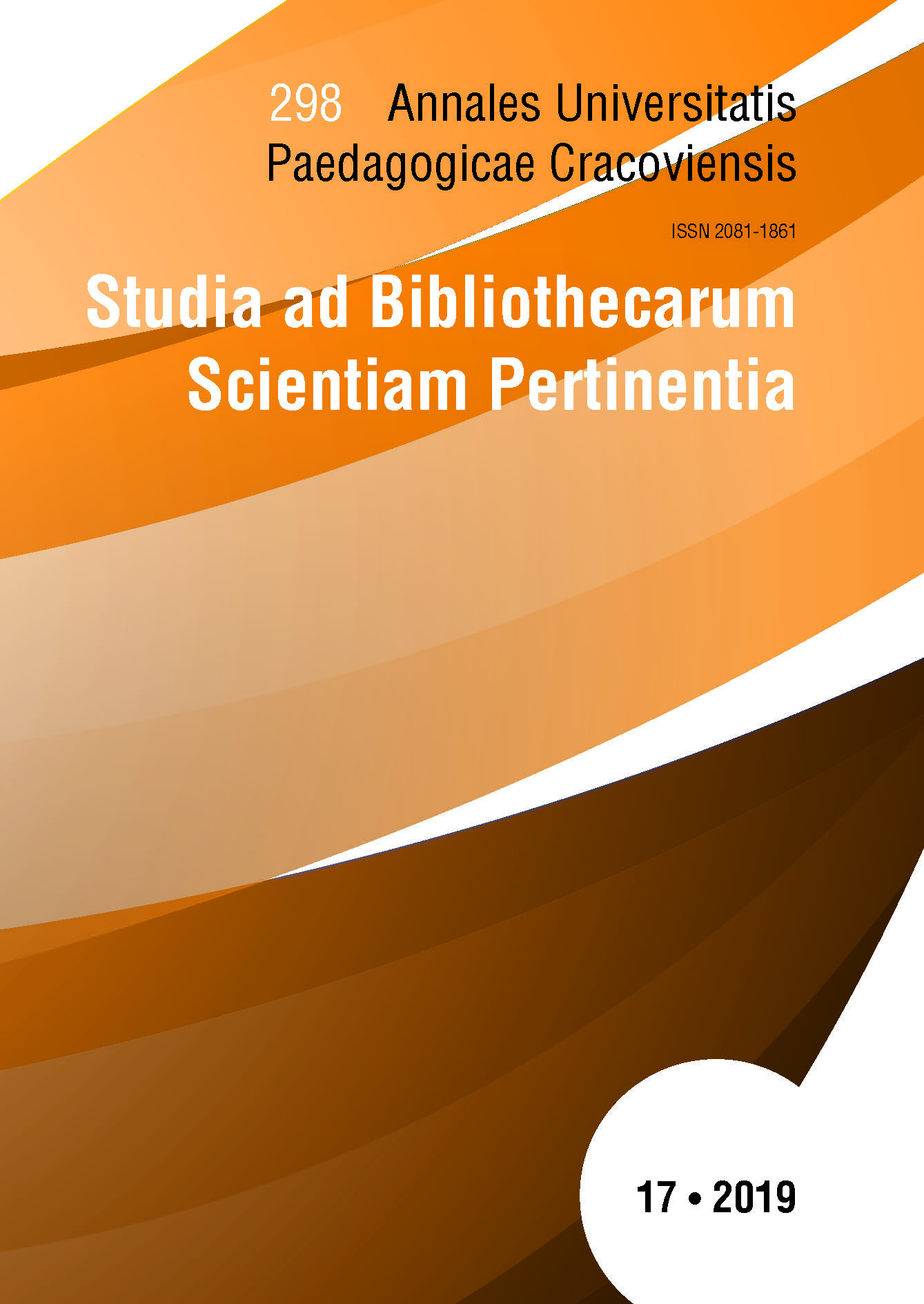Digital Competencies and Information Behaviors of IT students. Case Study of the Nicolaus Copernicus University in Toruń
DOI:
https://doi.org/10.24917/20811861.17.19Keywords:
digital competencies; data processing; digital content creation; communication; safety; problem solving; filter bubble; confirmation biasAbstract
Apart from the data smog and information overload, the phenomenon of the filter bubble and the confirmation bias belong to the problems that disturb access to reliable, relevant and objective information. The article describes the results of a research carried out on the predefined group - students of information architecture and students of information management and book studies from the Nicolaus Copernicus University in Toruń. The main goal of this research was to diagnose the impact of the filter bubble and the confirmation bias in correlation to the level of students’ ICT competencies. The results allowed to verify the self-assessment of digital competencies making by students according to the DigComp and to collect knowledge about information behaviors of the respondents.
References
Batorowska H., Między dorosłością a dojrzałością informacyjną. W: Współczesne oblicza komunikacji i informacji: problemy, badania, hipotezy, red. E. Głowacka, M. Kowalska, P. Krysiński, Wydawnictwo Naukowe UMK, Toruń 2014, s. 337–348.
Batorowska H., Od alfabetyzacji informacyjnej do kultury informacyjnej: rozważania o dojrzałości informacyjnej, Wydawnictwo SBP, Warszawa 2013.
Devine P. G., Hirt E. R., Gehrke E. M., Diagnostic and confirmation strategies in trait hypothesis testing, „Journal of Personality and Social Psychology” 1990, vol. 58, no. 6, s. 952–963.
Flaxman S., Goel S., Filter Bubbles, Echo Chambers and Online News Consumption, „Public Opinion Quarterly” 2016, vol. 80, iss. S1, https://academic.oup.com/poq/article/80/S1/298/2223402 (dostęp 15.07.2018).
Gremblewski B., Informatyka dla szkół ponadgimnazjalnych, MiGra, Wrocław 2012.
Internauci 2015, 2015, http://www.cbos.pl/SPISKOM.POL/2015/K_090_15.PDF (dostęp 15.07.2018).
Kamińska-Czubała B., Zachowania informacyjne w życiu codziennym, Wydawnictwo SBP, Warszawa 2013.
Kurkowska E. J., Edukacja informacyjna w bibliotekach a rozwój społeczeństwa wiedzy, Wydawnictwo SBP, Warszawa 2012.
Materska K., Zachowania informacyjne użytkowników informacji elektronicznej. W: Współczesne aspekty informacji, red. nauk. J. Goliński, K. Krauze, Oficyna Wydawnicza Szkoły Głównej Handlowej, Warszawa 2008 („Monografie i Opracowania”, nr 551).
Parisner E., Uważaj na internetowe „bańki z filtrami”, 2011, https://www.ted.com/talks/eli_pariser_beware_ online_filter_bubbles?language=pl#t-2725 (dostęp 15.07.2018).
Plous S., The Psychology of Judgment and Decision Making, Mcgraw-Hill Higher Education, New York 1993.
Ramowy katalog kompetencji cyfrowych, oprac. J. Jasiewicz, M. Filiciak, A. Mierzecka i in., 2015, https://cppc.gov.pl/wp-content/uploads/zal.-13-Ramowy_katalog_kompetencji_cyfrowych.pdf (dostęp 15.07.2018).
Raport Badawczy i Strategiczny JRC DigComp 2.0. Rama Kompetencji Cyfrowych dla Obywateli, 2016, http://digcomp.org.pl/wp-content/uploads/2016/11/digcomp-2.0-cz.-1.pdf (dostęp 15.07.2018).
Rocznik Statystyczny Rzeczpospolitej Polskiej 2016, Główny Urząd Statystyczny, Warszawa 2016.
Downloads
Published
How to Cite
Issue
Section
License
Copyright (c) 2019 Annales Universitatis Paedagogicae Cracoviensis | Studia ad Bibliothecarum Scientiam Pertinentia

This work is licensed under a Creative Commons Attribution-NonCommercial-NoDerivatives 4.0 International License.

